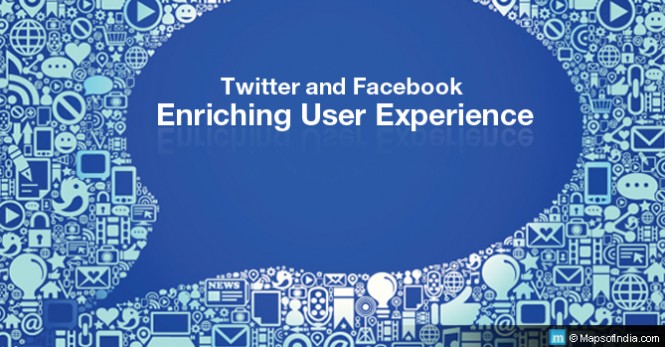 Change is the only constant thing in this world. Both Twitter and Facebook, the social media giants, know it all too well. They are always on their toes when it comes to experimenting and revamping their sites to provide a better user experience. And yes, in this process, they do use the posts and news feeds of millions of users even without the latter’s knowledge. Here are some of the latest experiments carried out by Twitter and Facebook.
Change is the only constant thing in this world. Both Twitter and Facebook, the social media giants, know it all too well. They are always on their toes when it comes to experimenting and revamping their sites to provide a better user experience. And yes, in this process, they do use the posts and news feeds of millions of users even without the latter’s knowledge. Here are some of the latest experiments carried out by Twitter and Facebook.
New Search Option: A revamped search design is being tested with small groups of users before the formal official rollout by Twitter. Soon, it will be accessible to a wider audience. The new search tabs will include top, live, accounts (new version of ‘people’), photos and videos options. Top will filter tweets by popularity; accounts will help you to search specific people; and live will sort data in chronological order. The new search option is said to be simpler and refined. It is built on the advanced search options to fine-tune search results by location, sentiments, people, and time period.
Something New on Music: Twitter has struck a deal with Rhapsody, the oldest streaming service. This will allow users to listen to and share any song from the millions of songs in the library via an audio card integrated with Twitter. Twitter users, who are not Rhapsody subscribers, can also avail this service.
Experiments With TV Timelines: This can be revolutionary in second screen viewing experience for content on television. In March 2015, Twitter started this experiment on iPhone. On using character name, hashtag of an episode or any keyword from a particular show on TV a pop-up dialogue box will appear and invite the users to join the TV Timeline for that show. It is yet to see how TV channels and production houses use this feature in real time.
More Intimate News Feed on Mobile: Facebook introduces the concept of Away Messages through the ‘sidebar status’, which shows the most recently messaged friends. It will not be displayed on the profile or news feed but on the sidebar along with a picture icon. They are uncluttered and more intimate.
Disappearing Posts: In the last quarter of 2014, Facebook tried experimenting on a feature, which will allow users to control how long their status messages will stay active on the profile page. It will enable them to schedule the deletion of their messages. However, the deletion of messages may not ensure the omission of the same from the Facebook server immediately.
Emotions in News Feed: Facebook often adjusts and experiments with news feeds without the knowledge of its users. In the latter half of 2014, Facebook revealed that it manipulated over a million randomly selected news feeds, including positive and negative posts, to gauge the emotional quotient of its users. It was sort of psychological study carried through social media.
Wait and watch what comes our way in the coming days. Till then, continue social networking.
Read More:
Should Indian Public Figures be Worried About ‘Legion’?
Indian Startups Taking Advantage of The FbStart Programme
Features of New MicroSoft Windows 10
Takeaways From Recent Twitter-Google Partnership
How Fake Accounts can impact Facebook?
Facebook’s ‘Hello’ App Promises Convenience
What Experiments Are Keeping Twitter and Facebook Busy?
Facebook Stops Microsoft’s Bing, Will Have Own Search Engine
4 Steps to Prevent Hacking of Your Gmail Account
Google Wallet: From Being Virtual to the Actual Wallet
Facebook’s In-App Search: A Potential Threat for Google
5 Things You Must Know About Twitter’s Livestreaming App
Twitter’s acquisition of ZipDial – Its Implications for Indian Start-ups





